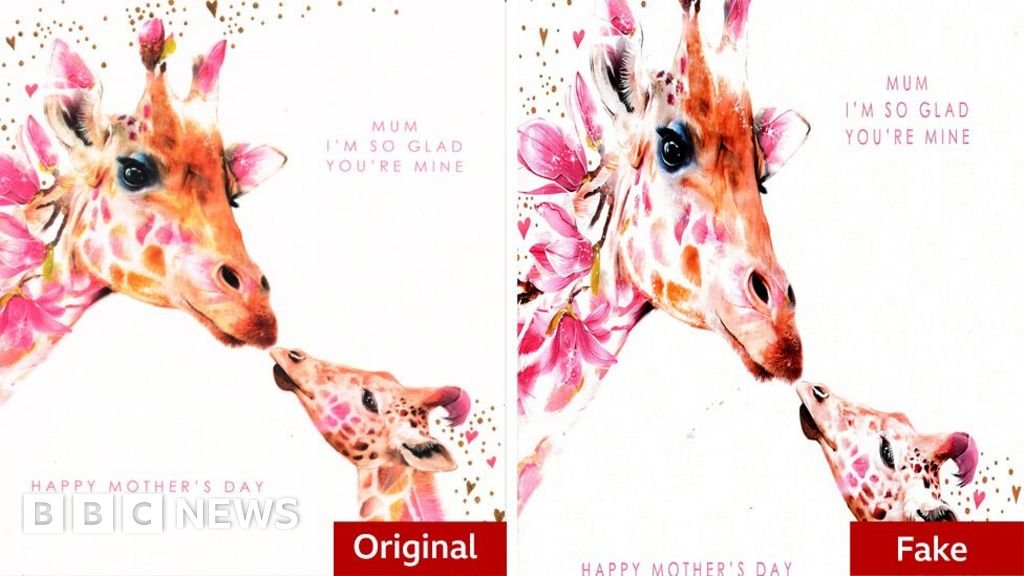
Temu agrees to remove rip-off greeting cards more quickly
Peter RuddickBusiness Reporter

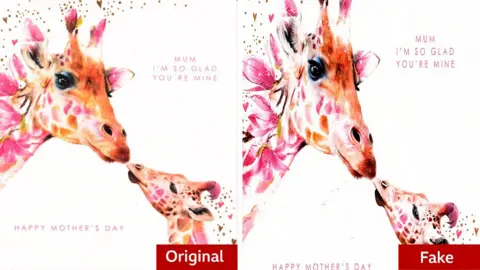 BBC/Lola Design
BBC/Lola DesignOnline shopping company Temu has agreed to work with the greeting card industry to more quickly remove copied designs from its site.
Card companies say hundreds of their copyrighted images have been used to create cheap rip-offs, costing them thousands of pounds in lost sales.
Designers told the BBC that the process of removing plagiarism listings is like the fairground game ‘whack-a-mole’ with copied products reappearing within days.
Temu said protecting intellectual property is a “top priority” and is encouraging vendors to join the trial of a new removal process specifically for the greetings card industry.

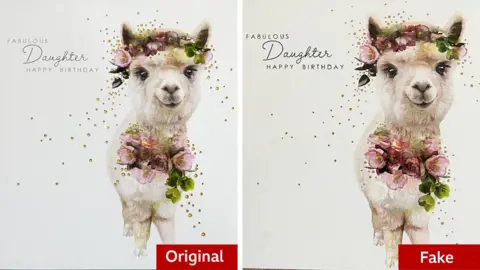 BBC/Lola Design
BBC/Lola DesignAmanda Mountain, co-founder of York-based Lola Design, discovered a catalog of designs she had created over a decade that had almost all been copied.
She found that the images she created were being picked up and being advertised on other products such as cards and t-shirts by other vendors.
Amanda bought a card using her design and found that the image was distorted and the paper was of poor quality.
“It’s not a pleasant feeling to see that you’ve poured all your love and hours into a few minutes,” she told the BBC. “I was shocked, and I actually thought to myself ‘what’s the point of me still designing, I might as well stop now’.”

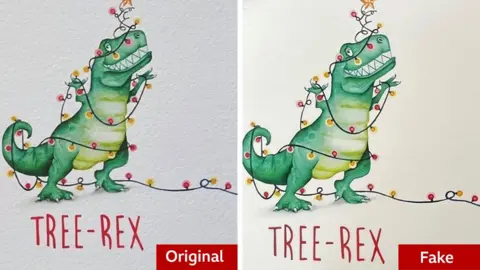 BBC/Citrus Bun
BBC/Citrus BunAmanda and her husband and business partner Frank estimate that fraudulent versions of their products have generated sales of £100,000 to online sellers, equivalent to around 13% of Lola Design’s annual turnover.
However, Amanda said the biggest impact was both the emotional toll and the time it took to remove copycat products.
“Every piece I create is actually a piece of me,” she said. “I know that sounds crazy, but it is. Every designer gives a piece of themselves because they just want to create a little bit of joy, and it’s not too much to say that people respect that.”

 Lola Design
Lola DesignFollowing pressure from the Greeting Card Association (GCA), Temu now has a bespoke takedown process for the industry, which means stolen designs are removed more quickly and cannot be re-uploaded.
Previously, card companies had to report each individual listing but, as part of the trial, they now only have to submit a link. The software will remove the product and any other using the same design.
A card publisher, which helped develop the new system, automatically removed 68 listings. Previously Temu could mean 68 separate forms or emails.
According to GCA, the system will then use AI to log the designer’s original creation as a protected image. It will then block any products using the design before they appear for sale.

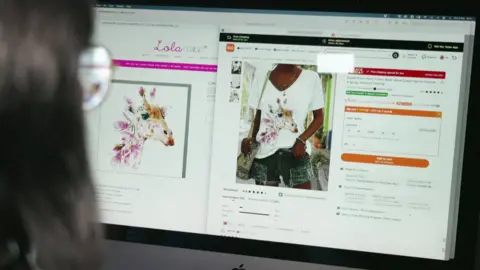 BBC/Lola Design
BBC/Lola DesignIn a statement, Temu said “intellectual property protection is a top priority” and “has invested heavily in resources to strengthen trust with brands, vendors and consumers”.
It said most requests to remove copyrighted material were resolved within three working days, but greeting card companies were being encouraged to join the new test that would automatically remove more products.
The system is suitable for the card industry, however the BBC understands that it could be used as a model for similar or alternative processes for other products.
GCA chief executive Amanda Ferguson said the industry welcomed the changes. “We know our members feel strongly about copycat sellers, and what’s more, we also know consumers are often disappointed by cheap copies,” she said.
“Our communication with Temu, and the actions they are taking, is a welcome first step in addressing those concerns,” she added.
For Amanda and Frank, not only is their livelihood at stake, but the future of the entire supply chain that depends on the 1.5bn greeting cards sold in the UK each year.
“At some point, it’s going to have an impact not just as a designer, but as a consumer, because there won’t be any high streets,” Amanda said. She also had a message for people buying copycat cards: “Cheap always comes at a price.”












Post Comment